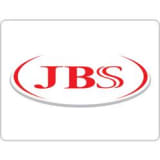
JBS is the largest animal protein processing company in the world, working in the areas of food, leather, products for pets, biodiesel, collagen, cans and cleaning products. The company is present in all continents with production platforms and offices in Brazil, Argentina, Italy, Australia, the USA, Uruguay, Paraguay, Mexico, China, Russia and other countries.
With access to 100% of the consumer markets, JBS has 140 production units worldwide and more than 120,000 employees dedicated to the success of the company, supported by a pioneering and enterprising spirit.
The leadership of JBS can be seen in various moments of its life:
Also incorporated into the management of JBS is the search for modernization, quality of products and raw materials, building more and better relationships with partners, customers, employees and the society, the satisfaction of its shareholders and commitment to issues of environmental responsibility.
Operation Location and Areas
Currently, JBS is active on all 5 continents, through its industrial plants and distribution centers. The Company’s headquarters are located in the city of São Paulo (state of São Paulo), Brazil, and is focused on the area of corporate support..
Production
Focused on the growth and geographic expansion of its operations, JBS spreads is production operations over 143 production plants, 61 located in Brazil, 5 in Argentina, 2 in Paraguay, 50 in the USA, 3 in Mexico, 11 in Australia, 8 in Italy and 1 each in China, Russia and Uruguay. Additionally JBS S.A. has feedlot operations in the USA, Australia, Brazil and Italy, with a onetime capacity to feed 1.10 million head of cattle, a tannery business with capacity to process 154,500 M2 of hides per day and a dairy production capacity of 1,266 tons/day. The acquisition of all of these plants was driven by the Company’s strategy to be in regions with the greatest concentrations of cattle in order to promote operational flexibility in production, reduction of cattle and finished product transportation costs, as well as the reduction of phytosanitary risks.
The strategic location of its plants is one of the factors that put JBS in an advantageous position in the market, presenting a production structure with lean costs and operational efficiency.